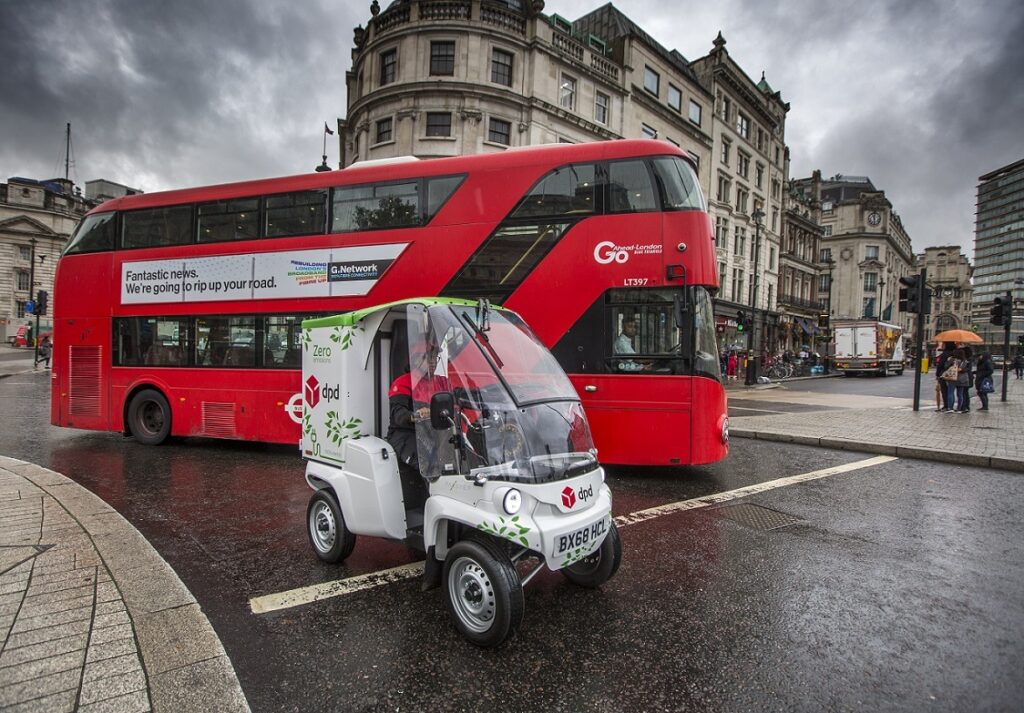Delivery company DPD has ramped up its electric vehicle (EV) ambitions, and called on government and manufacturers to take “urgent” action.
DPD is now targeting 500 EVs by the end of 2020, having only brought the date forward to 2021 in March. It currently operates 139 EVs, including Peugeot Partner Electric, Nissan E-NV200, Mercedes-Benz eVito and FUSO eCanter models.
Alongside its own ambitions, it has released a White Paper, titled Delivering a Zero-Emission Future, outlining an eight point action plan.
The White Paper calls on national and local government, energy providers and vehicle manufacturers to “start working together now” to reduce emissions and congestion for the benefit of current and future generations.
It is calling for these actions on a national level:
- Policy makers ensuring policy reflects the technology currently available and doesn’t regulate in a way that’s undeliverable due to the speed of vehicle development.
- Government streamlining and removing bureaucracy from the registration process of alternative fuel vehicles, which DPD says will improve fleet uptake.
- The Office for Low Emission Vehicles (OLEV) opening the plug-in grant schemes to a wider range of vehicles.
- A “cohesive” industry discussion with the Department for Transport (DfT) to establish appropriate regulation and best practice guidance for e-Cargo bikes.
Current± contacted the DfT for comment but did not receive a response at time of publication.
DPD is also calling on local government, including local authorities, London Boroughs, Transport for London (TfL) and other key stakeholders to engage final mile operators to help establish micro-depots.
DPD itself opened its third all-electric micro-depot in London earlier this year.
Clean air, ULEV and zero emission zone standards should also be made consistent the delivery company said, and local policies that create uncertainty and “unnecessary challenges” for operators should not be made.
Dwain McDonald, CEO of DPD, said decarbonising fleets is an operational and financial challenge that “isn’t happening fast enough”, meaning barriers slowing the pace of change must be removed.
“We cannot do this alone. We need stakeholders from across a range of industries to work together in a holistic way to create an infrastructure that makes large scale EV deployment feasible.
“Change is difficult and demanding, but emerging new technologies give the current generation of leaders and decision-makers the tools to lead a large-scale cultural change – we cannot kick this problem any further down the road,” McDonald added.
DPD is also calling on vehicle manufacturers to increase supply of right-hand drive 3.5t electric vehicles in the UK market and to continue to support innovations that will help enable Road to Zero.






